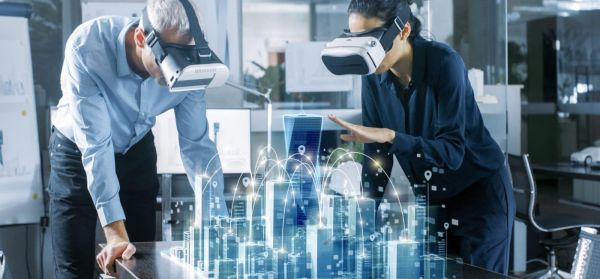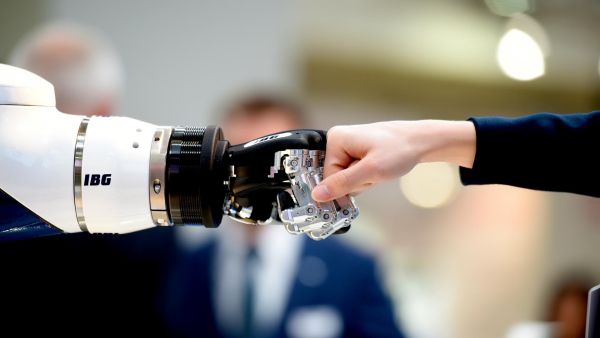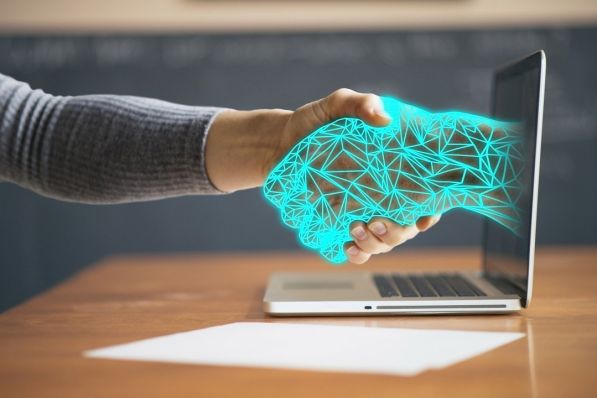Introduction
The growing presence of artificial intelligence (AI) has led to widespread worries about its effect on employment. Many people are concerned that as AI becomes more advanced, it will replace human workers, causing significant unemployment and economic problems. However, looking deeper shows a more complex reality.
Instead of eliminating jobs, AI can open up new opportunities, boost productivity, and promote economic growth. This blog will discuss why AI might not be the job destroyer many fear and how it can actually bring positive changes to the workplace.
The Fear of Job Loss
The fear that AI will lead to widespread job loss is not unfounded. History provides numerous examples of technological advancements displacing workers.

The Industrial Revolution, for example, saw machines take over many tasks previously performed by humans, leading to significant disruptions in the labor market. More recently, automation in manufacturing has replaced many manual jobs. It is understandable, then, that the advent of AI would raise similar concerns.
However, history also shows that technological advancements can create more jobs than they destroy. The key lies in the economy’s ability to adapt and evolve, creating new industries and opportunities that did not previously exist. AI is no exception to this trend.
The Evolution of Jobs
AI is not just about replacing human labor; it is also about augmenting it. By automating routine and mundane tasks, AI allows workers to focus on more complex and creative aspects of their jobs.
For example, in the medical field, AI can handle administrative tasks, such as scheduling and billing, freeing up healthcare professionals to spend more time with patients and focus on clinical care.
Moreover, AI is driving the creation of entirely new job categories. Data scientists, AI specialists, and machine learning engineers are roles that did not exist a decade ago but are now in high demand. As AI technology continues to advance, we can expect the emergence of even more new roles that we cannot yet envision.
Enhancing Productivity
One of the most significant benefits of AI is its potential to enhance productivity. By automating repetitive tasks, AI allows workers to focus on higher-value activities, leading to increased efficiency and output. This boost in productivity can translate into economic growth and the creation of new jobs.

For instance, in the retail industry, AI-powered systems can manage inventory more effectively, predict consumer trends, and personalize shopping experiences. This not only improves the bottom line for businesses but also creates new opportunities for workers in areas such as data analysis, customer service, and digital marketing.
The Importance of Skill Development
While AI can create new opportunities, it also necessitates a shift in the skills required in the workforce. As AI takes over routine tasks, there will be a growing demand for skills that AI cannot easily replicate, such as critical thinking, creativity, emotional intelligence, and complex problem-solving.
Investing in skill development is crucial to ensuring that workers can thrive in an AI-driven economy. This means rethinking education and training programs to focus on these in-demand skills. It also means providing opportunities for continuous learning and upskilling, allowing workers to adapt to the changing job landscape.
Collaboration Between Humans and AI
Rather than viewing AI as a competitor, we should see it as a collaborator. The most effective use of AI is not in replacing human workers but in working alongside them. AI can handle data-intensive tasks, analyze vast amounts of information, and provide insights that humans can use to make better decisions.
In the financial sector, for example, AI can analyze market trends and provide investment recommendations, while human advisors can use these insights to develop personalized strategies for their clients. In the legal field, AI can review documents and identify relevant information, allowing lawyers to focus on crafting arguments and advising clients.
The Role of Businesses
Businesses play a critical role in ensuring that AI is a force for good in the workplace. This involves not only investing in AI technology but also in their workforce. Companies should prioritize training and development programs that equip employees with the skills needed to work effectively with AI.
Furthermore, businesses should foster a culture of collaboration and innovation. Encouraging employees to embrace new technologies and think creatively about how to integrate AI into their work can lead to more productive and fulfilling careers.
Policy Implications
Governments also have a role to play in managing the transition to an AI-driven economy.
This includes investing in education and training programs that prepare workers for the jobs of the future. It also involves creating policies that support workers who may be displaced by AI, such as unemployment benefits and job placement services.
Governments should work with businesses and educational institutions to ensure that the workforce is equipped with the necessary skills.
This may involve public-private partnerships, funding for research and development, and incentives for businesses to invest in their employees.
Addressing Ethical Concerns
While the potential benefits of AI are significant, it is also essential to address the ethical concerns associated with its use. Issues such as data privacy, algorithmic bias, and the impact on worker rights must be carefully considered.

Businesses and policymakers should work together to develop frameworks that ensure AI is used responsibly and ethically. This includes creating transparency in AI decision-making processes, implementing safeguards against bias, and protecting the privacy and rights of individuals.
Case Studies of AI Integration
Several industries provide excellent examples of how AI can be integrated into the workplace without displacing workers. In healthcare, AI-powered diagnostic tools assist doctors in identifying diseases more accurately and quickly, leading to better patient outcomes. Rather than replacing doctors, these tools enhance their capabilities and allow them to provide more effective care.
In the automotive industry, AI is used to optimize manufacturing processes, improving efficiency and reducing costs. Workers are not only retained but also upskilled to work with new technologies, leading to more fulfilling and higher-paying jobs.
The Future of Work
As we look to the future, it is clear that AI will continue to play a significant role in shaping the workplace. However, rather than being a job killer, AI has the potential to be a job creator. By automating routine tasks, enhancing productivity, and creating new opportunities, AI can drive economic growth and improve the quality of work.
The key to realizing these benefits lies in our ability to adapt and evolve.
This means investing in education and training, fostering a culture of collaboration, and developing policies that support workers. By doing so, we can ensure that AI is a force for positive change in the workplace.
Embracing Change
Change can be daunting, especially when it involves something as transformative as AI. However, embracing this change is essential for both businesses and workers. Those who are open to learning new skills, adapting to new roles, and working alongside AI will be well-positioned to thrive in the future job market.
For businesses, this means being proactive in integrating AI into their operations and investing in their workforce. For workers, it means being willing to continuously learn and adapt, seeking out opportunities for growth and development.
Conclusion
AI is often portrayed as a looming threat to jobs, but this perspective overlooks the significant opportunities it presents. By automating routine tasks, enhancing productivity, and creating new roles, AI can drive economic growth and improve the quality of work.
The transition to an AI-driven economy will undoubtedly present challenges. However, with foresight, adaptability, and a focus on skill development, we can navigate these challenges successfully. By viewing AI as a collaborator rather than a competitor, we can harness its potential to create a more dynamic, productive, and fulfilling workplace.
In the end, AI may not be a job killer after all. Instead, it holds the promise of transforming the way we work for the better, opening up new possibilities and driving us toward a more innovative and prosperous future. The key is to embrace this change, invest in our skills, and foster a collaborative mindset, ensuring that both businesses and employees can thrive in this new era.
Related Posts





